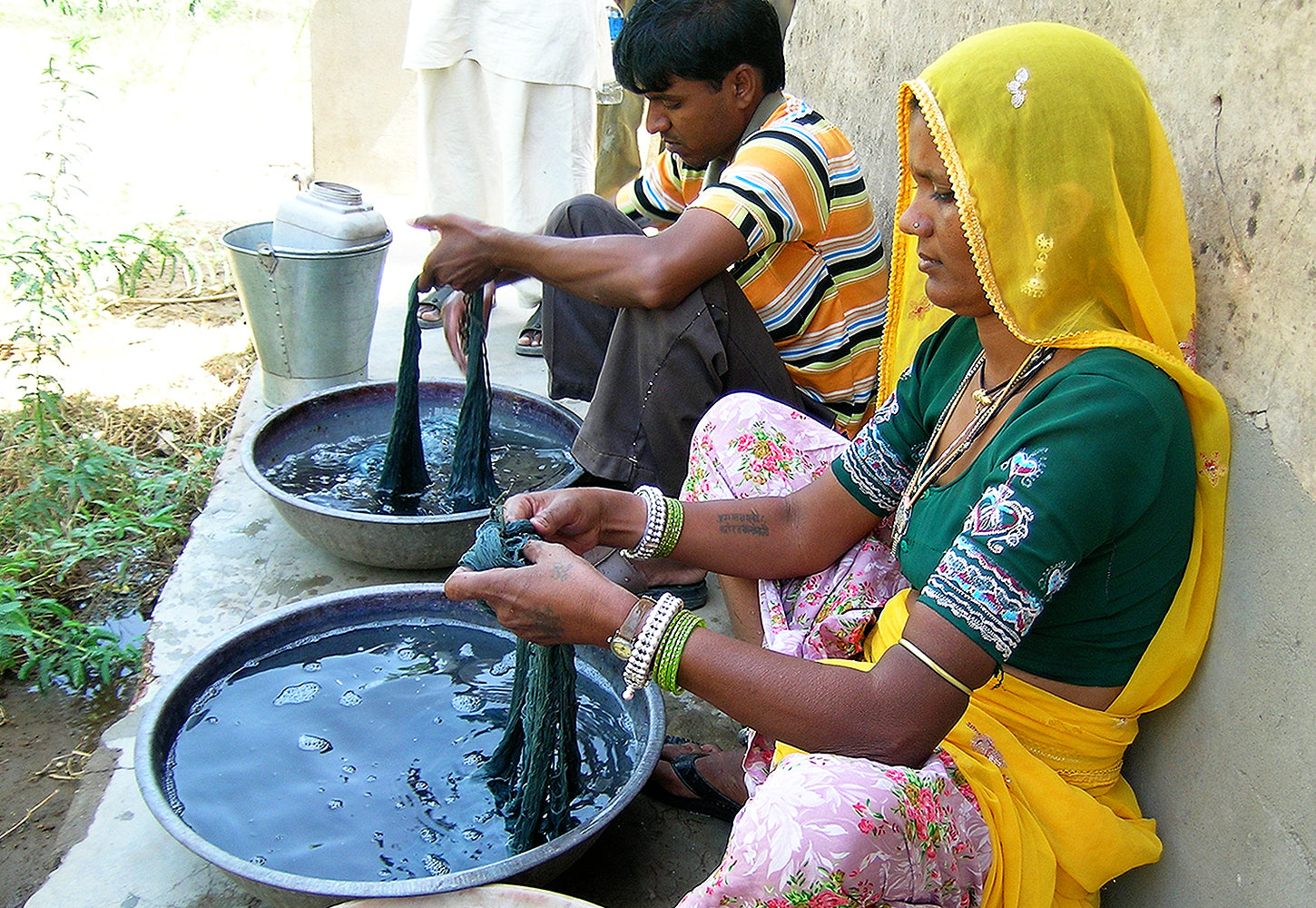Shipments from India to the US via international express mail have resumed with "delivery duty paid." We will cover the US tariff costs and keep our 2025 prices the same through the end of this year. Prices will increase in 2026 to cover the costs of US tariffs.
Shipments from India to the US via international express mail have resumed with "delivery duty paid." We will cover the US tariff costs and keep our 2025 prices the same through the end of this year. Prices will increase in 2026 to cover the costs of US tariffs.
A column with no settings can be used as a spacer
Link to your collections, sales and even external links
Add up to five columns
A column with no settings can be used as a spacer
Link to your collections, sales and even external links
Add up to five columns

Sprout Enterprise® works with artisan enterprises in rural communities in emerging markets which lack adequate access to markets or capital due in part to their remote locations or limited resources.
We help the entrepreneurs in our network build more prosperous businesses that create richer economic opportunities in these remote regions by providing a platform for access to markets, capital and appropriate resources for business expansion.
You can support these entrepreneurs through the R.I.S.E. Artisan Fund. Created by Realize Impact and Sprout Enterprise®, the R.I.S.E. Artisan Fund invests in early-stage artisan enterprises that create sustainable livelihoods for rural communities with few economic alternatives.
Sprout Enterprise Impact Report 2024: Expanding Opportunities
Sprout Enterprise Impact Report 2023: Funding Business Development
Sprout Enterprise® Impact Report 2022: Investing in Artisan Enterprises
Sprout Enterprise® Impact Report 2021: Creating Sustainable Livelihoods
India |
|

|
Maharashtra Maharashtra in west central India is one of the most developed states in India. In medieval times, the region was ruled by the Marathas, the Hindu warrior group credited to a large extent for ending Mughal rule India, that later lost to the British culminating in rule by the British East India Company. One of the Marathi rulers, Maharani Ahilya Bai Holkar, was a great builder of temples and patron of the arts who established the textile industry in Maheshwar. In Maharashtra, we partnered with WomenWeave, a charitable trust based in Maheshwar with the goal to make weaving a profitable and sustainable income-earning activity for women in rural India. More than 100 women earn income through WomenWeave's programs in central India. |
 |
Rajasthan Rajasthan is literally the land of kings. Rajput dynasties ruled the region for centuries, and their magnificent palaces and forts, now luxury hotels and museums, dot the region. Arts and crafts nurtured through the patronage of the maharajas endure to this day. Block printers in traditional centers of block printing, like Bagru and Sanganer, continue the craft passed down father to son for generations. In Rajasthan, we partner with Hatheli Sansthan, the artisan enterprise based in Tilonia, launched by the Barefoot College. Nearly 400 artisans earn an income from the manufacture of Tilonia® artisan products. |
 |
Tamil Nadu Tamil, the official language of Tamil Nadu, is one of the longest surviving classical languages in the world. The earliest manuscripts from India were written in Tamil and date back more than 2,000 years. A rich tradition of literature, art, music, dance and architecture continues to this day. Medieval Hindu temples, now World Heritage Sites, are "living temples" at the heart of southern cities, like Madurai. In Tamil Nadu, we partnered with ROPE Enterprise which creates employment for more than 1,000 skilled artisans. ROPE has pioneered the use of local agricultural waste, banana fiber, as a core material in its home decor and home furnishing products. We represented ROPE at US trade shows and market their line to US buyers. |
 |
Uttrakhand Known as Dev Bhoomi, land of the gods, the diverse terrain of Uttrakhand ranges from steamy lowland jungles to soaring Himalayan peaks. Twisting roads and walking trails lead to high-altitude pilgrimage sites where tales from the Hindu epics are set. In this northern state of India, we partner with Avani to help market Avani handwoven, wild silk textiles in the US. Avani includes a network of nearly 800 artisans and farmers who work together to grow, process, design and create products that generate income for local residents. |
 |
West Bengal West Bengal has a rich heritage of handloom weaving, and produces some of the finest varieties of cotton and silk sarees in the country. Every district has weaving clusters, each specializing in specific varieties of handloom weaving. In this eastern state of India, we partnered with Foundation for Rural Recovery and Development (FORRAD) to provide seed funding for the Rabha Women Weavers initiative. |
Mexico |
|

|
Chiapas From temperate mountainous highlands to steamy rainforests to plains along the coast lines, the geography of Chiapas is as varied as its people and their culture. A rich tradition of weaving continues in indigenous communities proximate to regional market centers like the colonial city, San Cristobal de las Casas. In Chiapas, we partnered with El Camino de Los Altos (ECLA), a collective of 130 Mayan women who weave using the traditional, pre-Hispanic, back-strap loom. Based in San Cristobal, ECLA includes weavers from seven Mayan communities in the surrounding highland region. |

|
Guerrero The Amuzgo are one of 60 indigenous communities in Mexico. Only two communities of 40,000 Amuzgo live today in Guerrero and Oaxaca. Known as "people of the loom", the Amuzgo are well known for fine textiles using native coyuche cotton. In this southern state of Mexico, we partnered with La Flor de Xochistlahuaca, a cooperative of 25 Amuzgo women founded in 1969 by Florentina Lopez de Jesus, a grand master of traditional weaving and folk art of Guerrero. |

|
Oaxaca Zapotecs and Mixtecs are among the dozen or more indigenous communities in the southern state of Oaxaca. Archeological sites dot the region and Spanish colonial churches anchor town plazas. Lack of economic opportunities beyond subsistence agriculture has resulted in significant migration from Oaxaca. Many leave rural areas for cities in Mexico or the US. In Oaxaca, we parter with Studio Xaquixe, a glassblowing studio which has trained and employs youth from the local community to produce glassware from recycled glass. We represent Studio Xaquixe at US trade shows and market their glassware to US buyers. We also support the promotion and marketing of Colectivo 1050º ceramics, an initiative of Innovando la Tradición. The Oaxacan-based, non-profit organization works to increase the symbolic, economic and cultural value of Oaxacan pottery and the potters' cooperative and brand it developed, Colectivo 1050º. |
Guatemala |
|

|
In Guatemala, we have provided funding and marketing support through the R.I.S.E. Artisan Fund to Itza Wood, a social enterprise based in the Péten jungle in northern Guatemala producing handcrafted home furnishings from sustainably harvested tropical woods, and to Tierra & Lava, a holistic skin and hair care company centered around environmental and social impact based in Antigua using locally sourced ingredients rooted in ancient Mayan healing wisdom. |
Cambodia |
|

|
In Cambodia, we have provided funding and marketing support through the R.I.S.E. Artisan Fund to FAIR WEAVE, a social enterprise offering handwoven textiles for home decor and apparel. FAIR WEAVE's throws, blankets, scarves and clothing are handcrafted with 100% natural and eco-friendly materials. |
